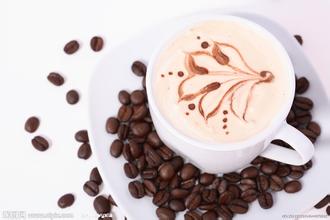Introduction of Peruvian Coffee Flavor Peruvian Coffee producing area
Peru is a huge and diverse land area where they can produce a large variety of coffee beans, and Peru produces very good Peruvian coffee. Overall, these beans have a Central American sheen but are packaged with South American flavors. Quality organic grounds do have more of a rustic coffee flavor. As long as the beans keep adding flavor that interests people rather than weakening it. This cup of Peruvian coffee has all the brightness and depth of taste. When a cup of regular Peruvian coffee is in your hand, you don't have to try to taste whether it's good or not.
Peruvian coffee beans are most famous for coffee beans produced in Chancha Mayo in the middle and Cuzco in the south. In addition, there are also some areas in northern Peru that produce organic coffee. Organic coffee is made from beans grown in the shade. Although the method of growing coffee beans under shade makes the yield not high, the quality can reach the level of gourmet coffee. This is because shade under trees slows the ripening of coffee trees, helps coffee to grow fully, makes it contain more natural ingredients, fosters better flavors, and reduces caffeine content.
Peru's coffee cultivation is planned, which greatly increases coffee production. Its rich acidity and mellow smoothness are its most striking features. Peruvian coffee has a mild acidity, medium texture, good taste and aroma, and is an indispensable ingredient in making mixed coffee. Excellent Peruvian coffee, rich aroma, smooth taste, structured, rich sweet, and contains elegant mild acidity, will quietly wake up your taste buds.
The difference between regular organic Peruvian coffee and high-quality organic Peruvian coffee is enormous: the cheaper beans are not only inferior in quality, but often have significant defects in the cup. Especially grassy, overfermented. Finding good Peruvian coffee beans takes a lot of effort to find among a large number of middlemen and other people who can buy them. But it also takes some hard work to pick out the sample beans. But that's better than slogging through piles of paperwork.

Important Notice :
前街咖啡 FrontStreet Coffee has moved to new addredd:
FrontStreet Coffee Address: 315,Donghua East Road,GuangZhou
Tel:020 38364473
- Prev

The flavor and taste of civet coffee the characteristics of manor production area introduction of civet boutique coffee beans
Captive civets are nocturnal animals that inhabit the jungle and eat very little. Coffee beans produced by wild civets are very rare. Only farmed civets can get more Kopi Luwak. Some unscrupulous traders keep this animal in a narrow cage.
- Next

El Salvador Coffee Flavor Taste Manor production area introduces El Salvador boutique coffee beans
The government finally realized the great role of coffee in the national economy, such as solving employment, earning foreign exchange and developing agricultural production, so it privatized some coffee export industries in 1990, hoping to increase the income rate of coffee in the export market. Today, this coffee accounts for 40% of the country's exports. The best quality coffee is exported from January to March, with 35% of the extra hard beans coming out.
Related
- Detailed explanation of Jadeite planting Land in Panamanian Jadeite Manor introduction to the grading system of Jadeite competitive bidding, Red bid, Green bid and Rose Summer
- Story of Coffee planting in Brenka region of Costa Rica Stonehenge Manor anaerobic heavy honey treatment of flavor mouth
- What's on the barrel of Blue Mountain Coffee beans?
- Can American coffee also pull flowers? How to use hot American style to pull out a good-looking pattern?
- Can you make a cold extract with coffee beans? What is the right proportion for cold-extracted coffee formula?
- Indonesian PWN Gold Mandrine Coffee Origin Features Flavor How to Chong? Mandolin coffee is American.
- A brief introduction to the flavor characteristics of Brazilian yellow bourbon coffee beans
- What is the effect of different water quality on the flavor of cold-extracted coffee? What kind of water is best for brewing coffee?
- Why do you think of Rose Summer whenever you mention Panamanian coffee?
- Introduction to the characteristics of authentic blue mountain coffee bean producing areas? What is the CIB Coffee Authority in Jamaica?

